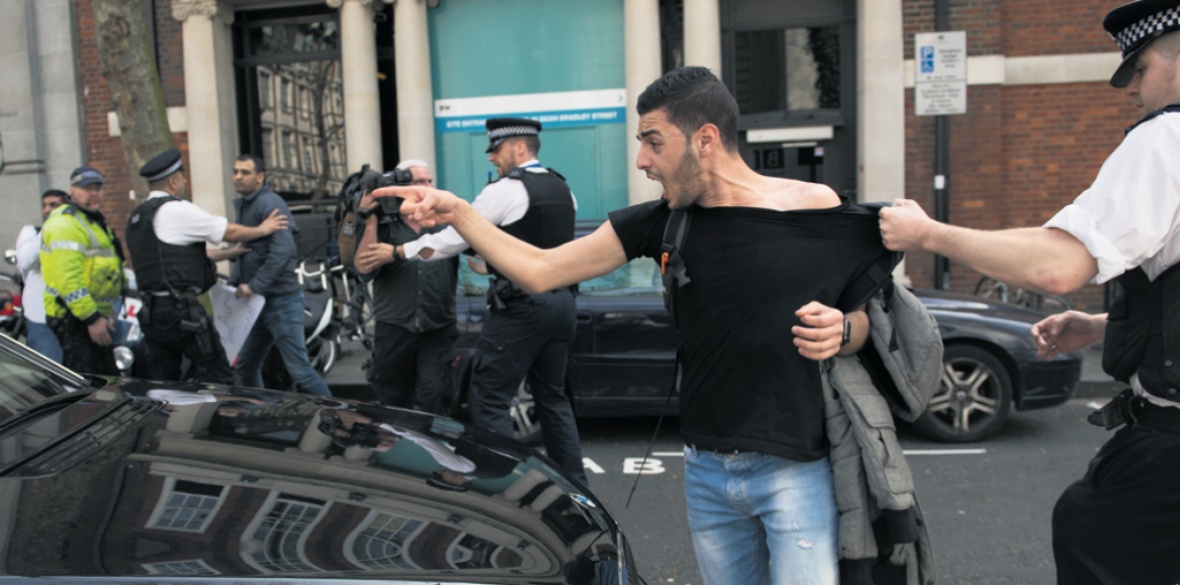This is the last article you can read this month
You can read more article this month
You can read more articles this month
Sorry your limit is up for this month
Reset on:
Please help support the Morning Star by subscribing here
THIS is a dangerous moment for the Middle East. Saudi-led forces have launched a new offensive on the Yemeni port of Hodeida. This is the country’s main port and the entry point for most of the country’s trade and for international aid.
The three-year war has already been devastating. This offensive could lead to the worst humanitarian disaster anywhere in the world since the second world war.
This is why Stop the War is organising a tour of public meetings and events publicising the crisis and building the widest possible campaign to end arms sales to Saudi and stop the war on Yemen.
Last month, a UN report outlined the gravity of the situation. Already, an astonishing 75 per cent of the population, 22 million people, need humanitarian assistance and protection. The percentage of the population in poverty has shot up from 49 per cent last year to 79 per cent now, as 8.4 million people don’t know where their next meal is coming from.
If an attack forces the port at Hodeida to close, there will be carnage. The UN suggests as many as 13 million people may die as a direct result.
As well as causing almost unimaginable suffering, it will destabilise the whole area by creating new flows of migration and ratcheting up tension between the region’s big powers.
Last week, even leading US foreign policy hawks Mike Pompeo and James Mattis called publicly for peace talks. Since then, British Foreign Secretary Jeremy Hunt has backed a UN call for a ceasefire.
Calls for peace are welcome, but there is a strong element of hypocrisy to these announcements. Britain and the US have been the main international supporters of the Saudi intervention.
The US and Britain are the two biggest arms suppliers to Saudi Arabia. British arms sales to the country have spiked dramatically since the war started in early 2015. The UK approved more than £3.3bn in military sales to the kingdom between April 2015 and September 2016 and a leaked parliamentary report showed that British weapons have been widely used in Yemen.
It is disgraceful that it has taken the killing of journalist Jamal Khashoggi for either government to come out against the war on Yemen, but neither Britain nor the US seems prepared to make the move that could really make a difference — ending the arms sales to one of the most aggressive and authoritarian regimes in the world.
If a government which the West considered an enemy had been complicit in the extrajudicial killing of a journalist and was conducting a foreign war with such devastating consequences, there would have been uproar. Military intervention would have been threatened and probably actioned by this stage. As it is, Saudi Arabia is an ally.
It is not just arms sales that is driving our foreign policy here, however important these are to the British elites.
Saudi Arabia is regarded by both Britain and the US as a vital strategic ally in the Middle East. It has long opposed regimes and movements that have challenged Western power in the region and helped guarantee the flow of Middle Eastern oil to the West. Saudi Arabia’s role as the organising centre for reactionary politics in the Middle East has been boosted since the Arab spring. Over the last few years it has been building a regional bloc whose aim is to crush the power of Iran.
Since the Saudis invaded, Iran has backed the Houthis in Yemen in a bid to stop Saudi Arabia’s ascendancy, so the Yemen battlefield has become a crucible for a wider power struggle.
In their calls for peace talks, both Britain and the US have put the onus on the Houthis to stop fighting, never mind that Saudi Arabia is the foreign aggressor. Such one-sided demands make progress towards peace extremely difficult.
At the same time, international pressure is mounting. Outrage at the murder of Jamal Khashoggi and the prospect of dramatic escalation in the war have combined to generate revulsion against the Saudi regime around the world. In Britain we have a Labour leadership that is clear on the issue and is openly calling for an end to arms sales to Saudi.
We have a real opportunity to help end Yemen’s suffering and avert further disaster and that is why stepping up the campaign is so important. The Stop the War tour aims to raise awareness about the war and the dangers of rapid escalation, but it is also designed to pile pressure on the government to drop arms sales immediately.
The tour is promoting a national petition and a lobbying tool that has already been used widely. If the war continues, it can be a launchpad for further protests. Speakers on the tour include Owen Jones, Lowkey, Lindsey German, Richard Norton-Taylor, Yemeni human rights activist Kim Sharif and MPs Lloyd Russell Moyle, Clive Lewis and Dan Carden.
Meetings are being organised across the country. If you are interested in helping put one on in your city, university or neighbourhood or inviting a Stop the War speaker to your Labour Party or trade union branch, get in touch now. We don’t have a lot of time.
Chris Nineham is deputy chair of Stop The War.











